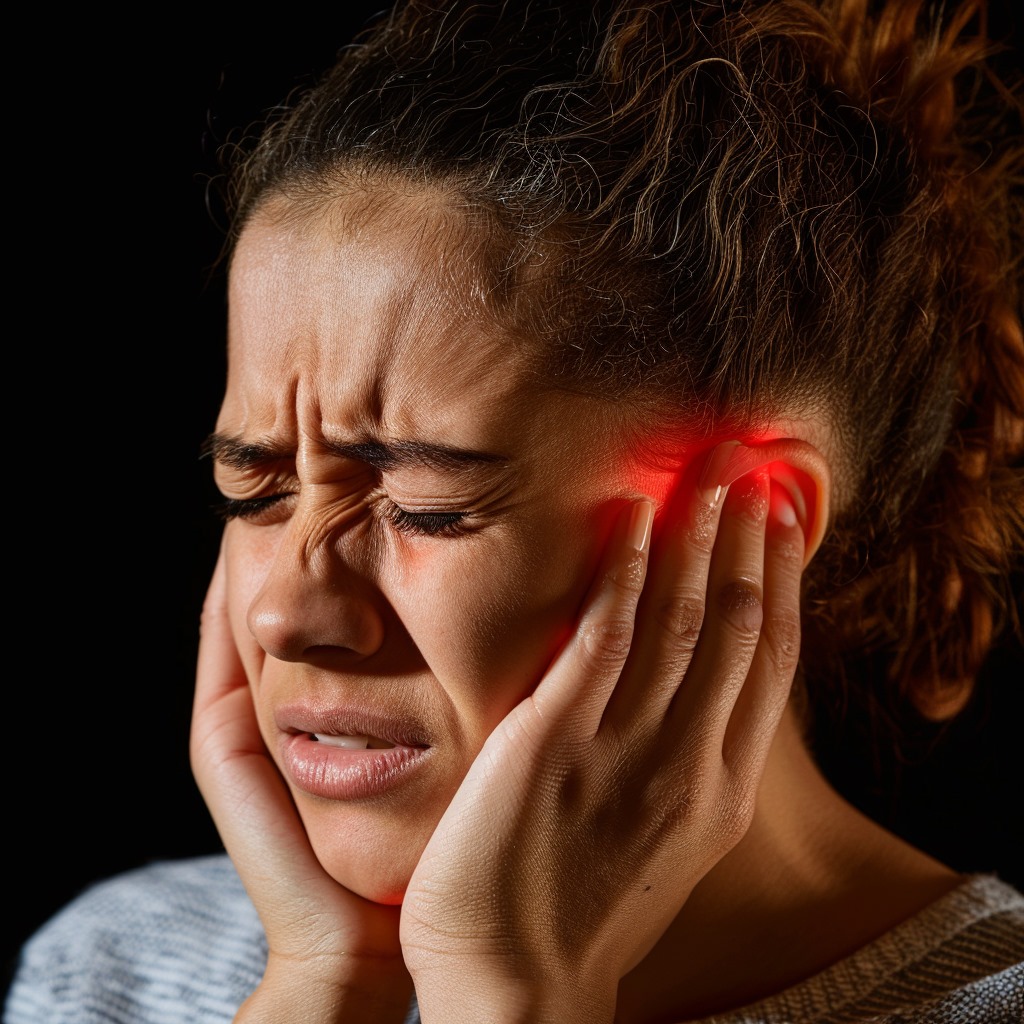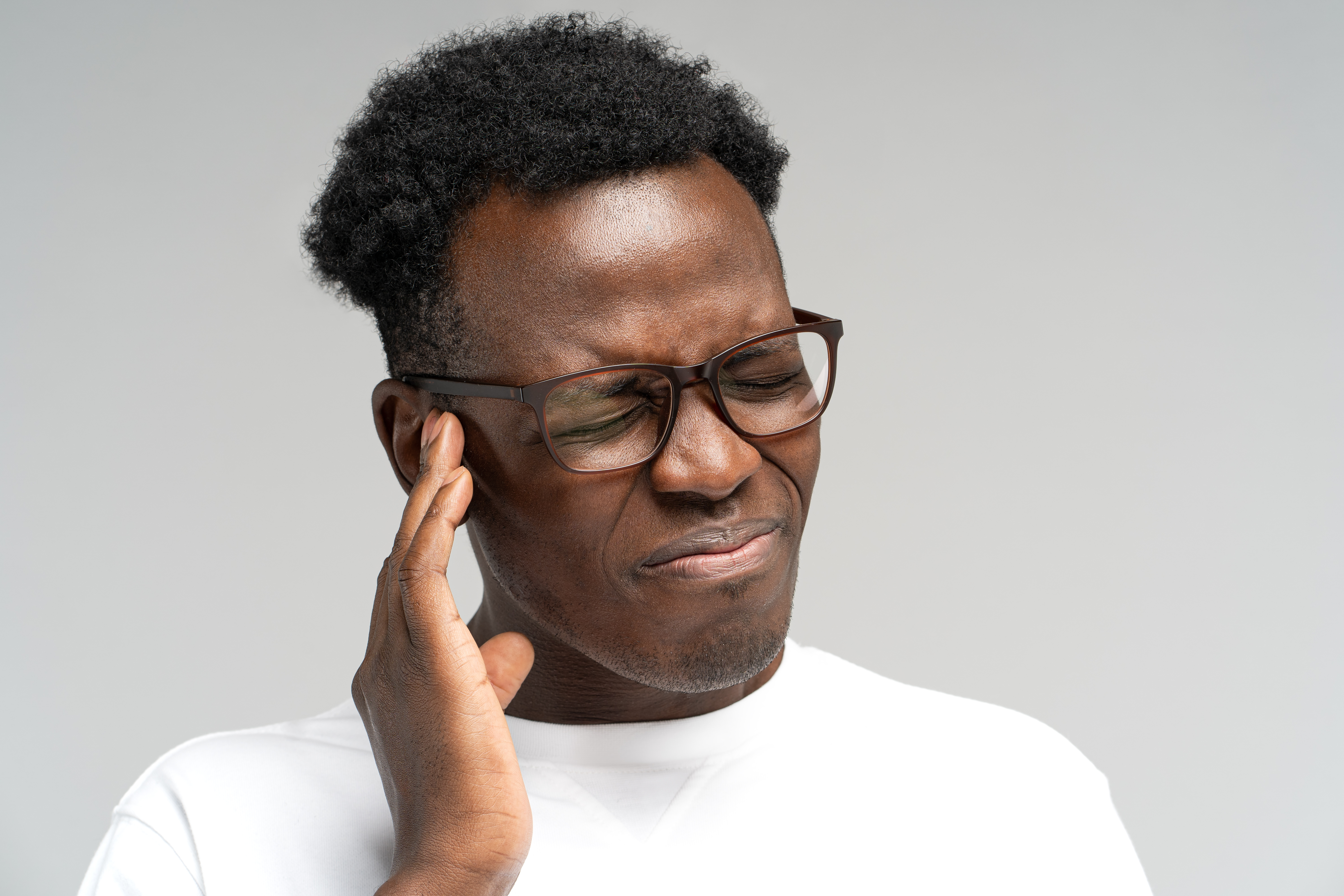Ear Ache

Earaches are a common problem that can really bother us in our daily lives. In this article, we'll talk about earaches, covering everything from short-term discomfort that lasts a few days to ongoing issues. We'll also share information about the different types of earaches, what causes them, and when you should see a doctor right away.
Most earaches are not serious and can be improved with changes in how you live or by using over-the-counter treatments. But it's important to know about the different types of earaches, what causes them, and when it's time to get medical help.
Earaches can show up in different ways, and it's helpful to know about the types so you can manage them better. Each type of earache has its own features, like where it hurts, how long it lasts, and what other symptoms come with it. Understanding these things makes it easier to figure out what's going on and how to handle it.
- Ear Canal Inflammation: Water exposure, using cotton swabs or matches that push earwax deeper, irritation from hearing aids, earphones, or protectors, contact allergy to substances like ear drops or hair spray, and underlying skin diseases can all lead to inflammation and discomfort in the ear canal.
- Clogged Ear (Earwax Buildup): A narrow ear canal, excessive ear hair, or using hearing aids can contribute to the buildup of earwax. Additionally, pushing earwax back with cotton swabs, increased earwax production, and the presence of hard earwax, more common in the elderly, can result in ear canal blockage.
- Middle Ear Infections (mostly in Children): When viruses or bacteria enter through the Eustachian tube, especially after colds or sore throats, and the Eustachian tube becomes blocked, it can trap viruses, bacteria, and fluid, leading to middle ear infections in children.
- Middle Ear Infections: Inflammation triggered by a common cold or sore throat, allowing the entry of viruses and bacteria, combined with Eustachian tube blockage trapping viruses, bacteria, and fluid, results in middle ear infections characterized by inflammation and pressure.

Often caused by conditions like middle ear infections or inflammation of the ear canal, ear aches can be incredibly uncomfortable. While many cases of benign earaches can be managed at home with simple remedies, it's important to understand when to seek medical advice if symptoms persist or worsen.
In most cases, mild earaches can be relieved with at-home remedies, which can help alleviate pain and discomfort. These remedies are particularly effective for addressing symptoms associated with inflammation or pressure on the eardrum. However, it's crucial to recognize when professional medical attention is necessary to ensure proper diagnosis and treatment.
- Symptoms persist or worsen after trying home remedies.
- There is severe pain or discomfort in the ear.
- There is discharge or bleeding from the ear.
- The earache is accompanied by high fever or other concerning symptoms.
- There is a history of ear problems or ear surgeries.
- Warm compress: Applying a warm compress to the affected ear can help soothe pain and reduce inflammation.
- Over-the-counter pain relievers: Non-prescription pain relievers like paracetamol (acetaminophen) or ibuprofen can help alleviate discomfort.
- Ear drops: Over-the-counter ear drops, especially those containing olive oil or hydrogen peroxide, can help soften earwax and alleviate pain caused by blockages.
- Hydration: Ensuring proper hydration can help thin mucus and alleviate pressure in the middle ear.
- Rest and elevation: Encouraging rest and keeping the head elevated can help reduce pressure and discomfort in the ear.
- Avoiding irritants: Avoiding exposure to irritants such as cigarette smoke or loud noises can prevent exacerbation of ear pain.
- Proper ear care: Avoid cleaning or picking the inside of the ears to preserve the protective function of earwax.
- Keep your ear dry: Bend your head forward during showers to prevent water and soap from entering the ear canal.
- Take precautions when swimming: Thoroughly dry the auricle and entrance to the ear canal after swimming or showering to prevent moisture buildup. Use earplugs when swimming.

When facing earache symptoms, it's important to acknowledge that while home remedies can offer relief in many cases, there are instances where symptoms demand evaluation by a General Practitioner (GP) for proper diagnosis and treatment. Despite the availability of remedies, certain symptoms may indicate a more serious underlying condition that requires immediate medical attention.
Recognizing urgent symptoms in both children and adults is essential for timely intervention and prevention of potential complications. It's imperative to be vigilant and seek immediate medical attention if experiencing any of the following alarming symptoms:
- Severe or persistent pain: Intense or persistent ear pain that is difficult to manage with over-the-counter remedies may indicate a more serious issue requiring medical assessment.
- High fever: A high fever, particularly in children, coupled with earache symptoms, could signal an infection that necessitates prompt medical evaluation and possibly antibiotic treatment.
- Discharge or bleeding from the ear: : Any discharge or bleeding from the ear should be regarded as a red flag, as it may indicate a ruptured eardrum or other significant ear-related problems that require immediate medical attention.
- Worsening symptoms:: If symptoms worsen over time, such as increasing pain, fever, or other discomfort, it's crucial to seek medical assistance promptly.
- Earache in young children or infants: Young children or infants experiencing earache symptoms may not be able to communicate their discomfort effectively. Therefore, any signs of distress or unusual behavior should prompt a visit to the doctor.
- Accompanying symptoms: Symptoms such as dizziness, headache, or neck pain along with earache may indicate a more complex issue that requires medical evaluation to determine the underlying cause and appropriate treatment.